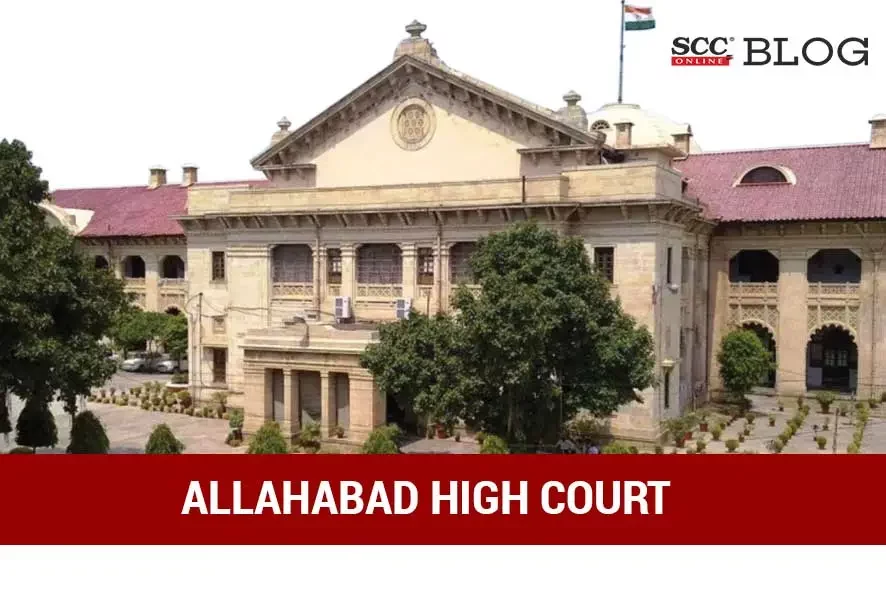Allahabad High Court: In a suo motu public interest litigation concerning the shortcomings and deficiencies in the running of child care institutions, the division bench of Pritinker Diwaker and Ajay Bhanot, JJ. has pointed out the shortcomings which need urgent attention and issued appropriate directions. Further, it directed the Principal Secretary, Women and Child Development Department, Government of U.P. to file a personal affidavit on 06-11-2023. The Principal Secretary was also directed to disclose the number of observation homes of different categories whether run by the Government or private agencies in the State o and with the aid of the Government and the number of children of different age groups residing in such institution.
The Court noted that after the inspection of various child-care institutions throughout the State by Justice Ajay Bhanot, revealed various shortcomings and deficiencies in the running of the institution which directly implicate the fundamental rights of children of these homes under Article 21 of the Constitution of India. The children who are residing in these homes constitute among the most vulnerable sections of society. The State is their pater familias.
The Court pointed out that the children are living in cramped conditions with little or no access to sunlight, fresh air, playgrounds or open spaces. The living conditions will impede the holistic growth of the children. The conditions are worse than prisons. The Court noted that various directions have been issued by the Juvenile Justice and POCSO Committee of the Court requesting the State Government to initiate measures to shift the overcrowded homes to more spacious places with adequate facilities. However, no response has been forthcoming from the State.
Thus, the Court issued directions to the State Government to accord top priority to the shifting of these homes to more spacious environments with adequate facilities for sports and outdoor activities. It said that it will be an interim measure till standard parameters for establishing observations homes are drawn up regarding the facilities to be available in such homes.
The Bench further said that the staff in such homes is the most critical part of the functioning. In many cases the homes are not being headed by duly appointed supervisors and other staff members are not adequately trained. The interface of children with the staff evolves their personalities and has an influence on their mental health. In case the staff is not well trained and sensitized to dealing with children, the environment in the childcare institutions may cause more harm than good to the children.
Further, it noted that the budget allocation for the food items/diet, and other necessities of living has not been revised in many years. This is adversely impacting the growth of the children. The educational facilities also need to be upgraded and diligently monitored. Efforts should be made by the staff and the teachers in the institutions to identify the weaknesses of individual children and provide the necessary support to enable them to overcome the same.
Concerning the emotional development and physical activities of the children in these homes, the Court said that it needs special attention since they live in circumstances very different from children who have a good fortune of stable and supportive families. For this purpose, the Court suggested that a proper transformative environment and activity system has to be developed in consultation with professional bodies.
The Court said that the formal education system also needs substantial upgrade. Vocational training provided to the children has to be linked with employers in the market. Proper training which equips the inmates with high quality skills has to be ensured in consultation with professionals in the field.
Further, the Bench clarified that the State Government will have to draw up distinct lines of approach for children who need vocational training and those who are to be imparted regular school education.
Concerning the girl child, the Court said that special care must be taken of the girl child, and lady counsellors should appoint to guide the girls during their growing years.
Further, the Court said that the Right to Free and Compulsory Education of Children has been recognized by the legislature as a statutory right and exalted by Constitutional Courts as a Fundamental Right. Thus, it is the responsibility of the State to ensure that the rights of the children in the observation homes are brought to fruition.
Thus, the Bench directed the State Government to undertake an exercise for admission of the children in reputed schools in the vicinity of the homes. Further, to give the benefit of reservation in schools of repute in the Right to Education Act in the category of disadvantaged sections of society to these children. The Bench further asked the State Government to consider waiving the requirement of income certificate of families for the purpose of granting such benefit to these children.
The matter will next be taken up on 06-11-2023.
[In Re Suo Moto v State of Uttar Pradesh, 2023 SCC OnLine All 2123, Order dated 19-10-2023]







